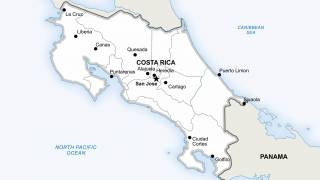Nigeria’s Travel Advisory Now Includes Level 4 Warning

The U.S. Department of State has expanded its Travel Advisory for the Federal Republic of Nigeria related to substantial civil unrest.
This Travel Advisory published on October 29, 2019, now includes a Level 4: ‘Do Not Travel’ warning for the following areas in Nigeria:
- Borno and Yobe States and Northern Adamawa State
- Adamawa, Bauchi, Borno, Gombe, Kaduna, Kano, and Yobe states
- Coastal areas of Akwa Ibom, Bayelsa, Cross Rivers, Delta, and Rivers states, with the exception of Port Harcourt
Additionally, U.S. government personnel have limited ability to provide emergency services to U.S. citizens in many areas of Nigeria due to security conditions.
This is unfortunate news since Nigeria's visitor arrivals reached a record of about 1.8 million people in 2017.
Nigeria has a population of over 200 million residents and is located in West Africa, bordering Niger in the north, Chad in the northeast, Cameroon in the east, and Benin in the west.
But, there is some recent good news regarding Nigeria’s security capabilities.
On October 30, 2019, the U.S. Embassy & Consulate in Nigeria issued a press release announcing the U.S. Military began training Nigerian Air Force medical personnel on Casualty Evacuation (CASEVAC) as part of a 4-phased Aerial Patient Movement Program.
These training sessions are to assist in the increase of the medical capability of the Armed Forces of Nigeria. The training provided patient evacuation tactics, techniques, and procedures to reduce casualty mortality rate at the point of injury and increase patient survivability during transport.
Separately, the Canadian and UK governments have also issued similar travel warnings to their citizens.
If you decide to travel to Nigeria, the U.S. State Department suggests the following actions:
- Carry proper identification, including a U.S. passport with a current Nigerian visa and exercise caution when walking or driving at night.
- Monitor local media for breaking events, and be prepared to rapidly adjust your travel plans.
- Enroll in the Smart Traveler Enrollment Program (STEP).
- U.S. citizens who travel abroad should always have a contingency plan for emergency situations, such as this Traveler’s Checklist.
From a health perspective, the US Centers for Disease Control and Prevention (CDC) has issued several Travel Alerts for various disease outbreaks in Nigeria during 2019.
The UK’s Foreign Travel Services says ‘visitors to Nigeria should be up to date with routine vaccination courses and boosters. These vaccinations include for example measles-mumps-rubella (MMR) vaccine and the diphtheria-tetanus-polio vaccine.
Moreover, those who may be at increased risk of an infectious disease due to their work, lifestyle choice, or certain underlying health problems should be up to date with additional recommended vaccines.
And, travelers who intend to visit Nigeria for 4-weeks or more, should be aware that proof of vaccination against poliomyelitis, given between 1 month to 12 months before departure, may be required on exit.
Failure to produce this documentation may result in vaccination on departure, most likely with the oral polio vaccine.
The US CDC says any vaccine can cause a side effect, which should be reported to a healthcare provider asap.
Travel Alerts published by Vax-Before-Travel
Our Trust Standards: Medical Advisory Committee
























